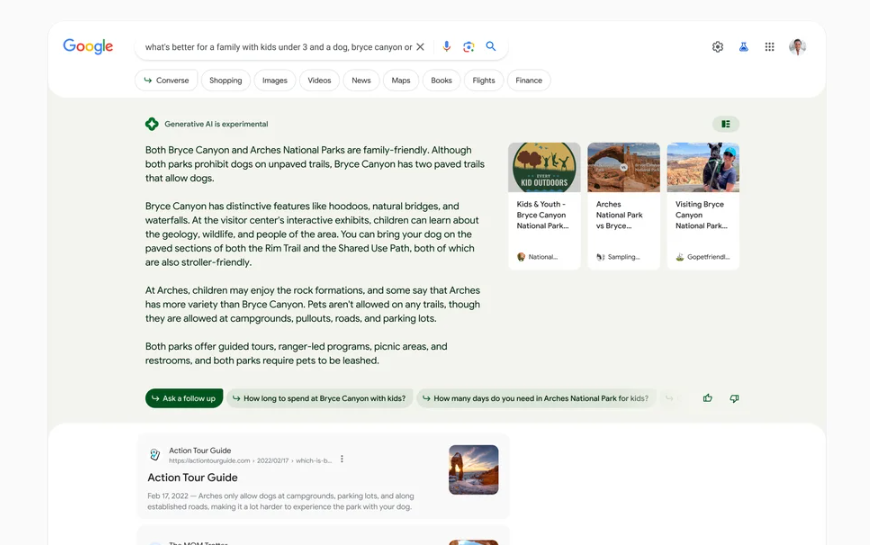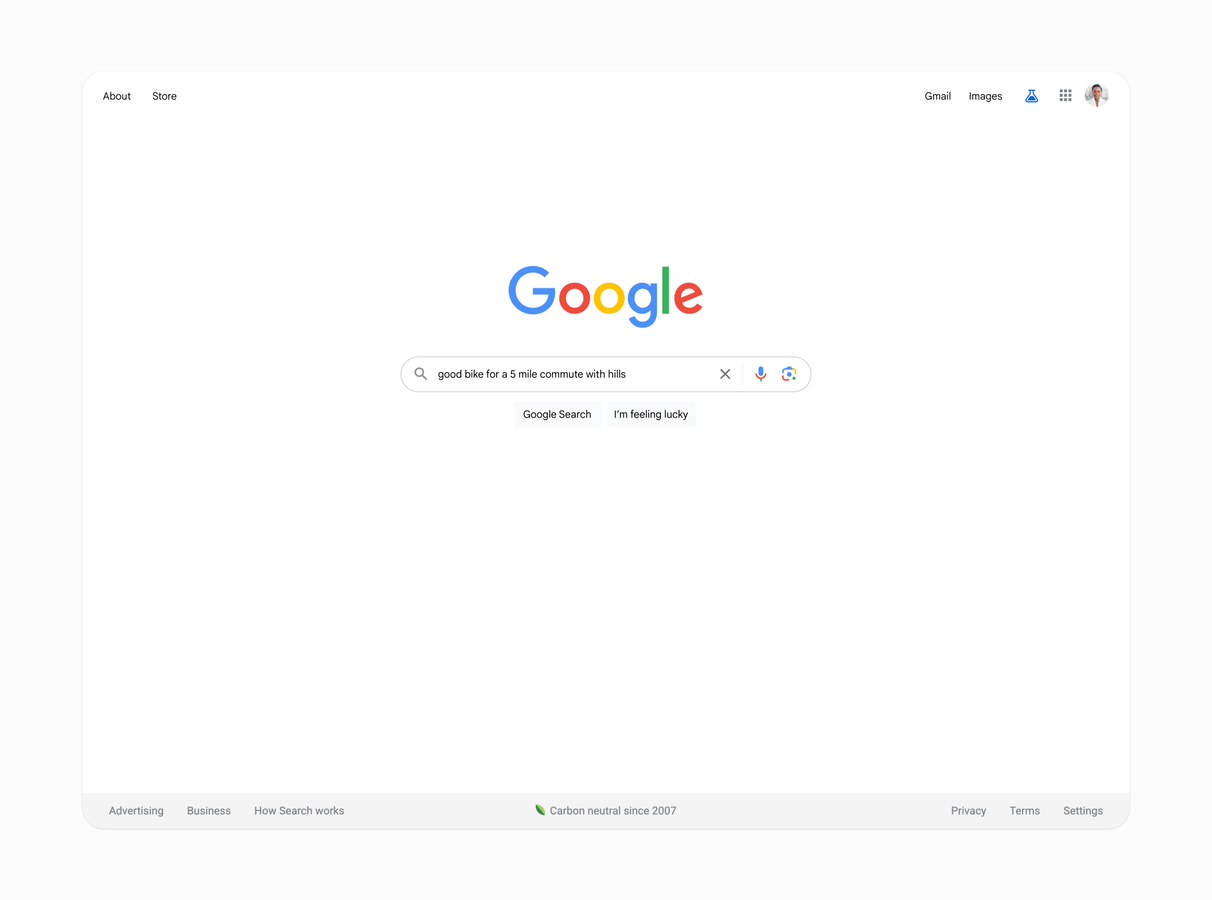 AI
AI
 AI
AI
 AI
AI
Google LLC said today it’s bringing greater transparency to image search so people can see at a glance if a JPEG is a genuine photo or generated by artificial intelligence.
The new capabilities in Google Image Search were announced at Google I/O today, and include an “About this image” feature plus a file markup that makes it possible for images to be labeled “AI-generated,”
They come at a time of rising interest in so-called generative AI, which is a technology that can create content including images from a simple text command. We also live in the age of “deepfakes,” which refers to AI-generated images that sometimes look so convincingly real that it’s hard to know if they’re a fake or not — such as this example of Donald Trump and Joe Biden sharing a joke.
Google said it wants people to be able to assess quickly whether an image is AI-generated, and to do that, it will provide more context with “About this image.” Users will be able to click and see information such as when the image was first indexed in Google Search and where it first appeared online. Users will also be able to see where else it has been used, so they’ll be able to establish if a fake image is being used as misinformation, for example.
The feature will appear in the coming months and will be accessible by clicking on three small dots next to the image within Google Images search results. It will also be accessible by right-clicking or long-pressing on an image in Google Chrome across desktop and mobile devices, Google said.
In a related move, Google said all AI-generated images created with its own tools will contain a markup in the original file that provides context on its origins. Creators and publishers will also be able to add similar markups to their AI-generated images. When they do this, a label will be added to Google Images search results, so others can verify that they’re created using AI. According to Google, a number of publishers including Shutterstock Inc. and Midjourney Inc. have already agreed to use the feature, which will launch in coming months.
Constellation Research Inc.’s vice president and principal analyst Andy Thurai said Google’s combination of embedded metadate and water marks looks to be especially compelling. “It’s by far the best responsible AI theme that I have seen,” he told SiliconANGLE. “Fake content, especially during election times, can do a great deal of harm so this is a good start in preventing that.”
Elsewhere, Google said users will soon be able to use generative AI to enhance the way they search for information. It’s launching an experimental new tool called the Search Generative Experience that will allow users to elaborate on their search for information in a conversational way, Google said.
The way it works is that users will see suggested next steps after conducting a search, with various links to dig deeper. When they tap on a next step, they’ll be able to access a new conversational mode where they can ask Google more complex questions about the topic.
Google explained that if someone wants to search something along the lines of “What’s better for a family with kids under 3 and a dog, bryce canyon or arches,” they would normally have to break the query down into several different searches to find the information they need. With the generative AI conversational mode, Google will understand the entire query, it said.

The Search Generative Experience integrates with Google Shopping, so it could be especially useful for people looking for information about new products. If someone is shopping for a new bicycle, for instance, Google will provide snapshots of various factors to consider, as well as a list of products that meet their needs. Users can then ask if the bicycle is available in different colors, is suitable for off-road, or something else. Google will automatically understand the context, and that the question refers to a specific bicycle.

Google said the new experience is all about eliminating the work from searching for information, helping users to understand topics faster and uncover new viewpoints and insights. Google will continue to show ads, and they’ll be clearly labeled as such, it added.
Thurai was full of praise for Google’s new search capabilities: “Combining these features with Google Shopping can be good for websites and e-Commerce enterprises,” he said. “This can be a differentiation for Google while Microsoft is struggling with the market size.”
Google has created a waitlist for those who’d like to test the Search Generative Experience as part of its experiment, which will launch in the U.S. in coming weeks.
THANK YOU